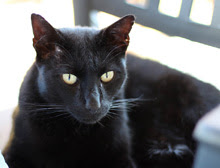If you're not familiar with French, here's a language lesson: French for "parking lot" is le parking. See how easy French can be?
Public parking lots (or garages) are always marked by the big white "P" on a blue square. This is one of the lots in St.-Aignan. It's just outside of the center of town. Cars entering and exiting the lot, as well as pedestrians doing the same, have to negotiate the arched entry. The arch opening is exactly one car wide.
Under the "P," the signs read Gratuit (free of charge) and Interdit aux poids lourds (no big rigs).
This lot gets a workout on Saturdays, which is market day in St.-Aignan.
Sunday, July 19, 2009
Subscribe to:
Post Comments (Atom)







I'm waiting in anticipation for the photos--bring 'em on. Brittany and the Loire are areas of France I have never visited.
ReplyDeleteI thought the French were very antipathic about letting foreign words into the language. (unlike others which seem to let a lot of english words in)
ReplyDeleteSoon there will be more French words in American English than in French French.
ReplyDeleteFrench Canadian are the true defenders of the French language.
will, use the category buttons in the sidebar to see the past posts I've done on Brittany and the Loire Valley.
ReplyDeleteurspo, French is full of "foreign" words, much the same way that english is. Shall we rendez-vous for a tête-à-tête?
chm, yes, the Québecois are fierce defenders of the language!
Sometimes the French Canadian attitude makes at least one French person of my acquaintance laugh. According to him, the French have very pragmatically adopted the term 'weekend' because there is no French equivalent. The Quebecois on the other hand determinedly use some long winded phrase which means 'the two days at the end of the week' or something.
ReplyDeleteBack in the 70s when I first visited France, driving from the Channel coast all the way to Aix-en-Provence, the French were already using le parking, le Dancing and le Camping.
ReplyDeleteBut it's true about the French Canadians, a lot of which has to do not only with love of the motherlaqnd, but also with the political/cultural struggle with the dominant English Canada that surrounds them.
It also pops up in other ways. I have a cousin who lives in Montreal. He has friends who live on the island in the Saint Lawrence that was the original Montreal and when they bought their house the usual title search commenced. Properties on the island are highly prized and usually passed down in families rather than sold outside them. Their property had had only three previous owners:
1) Name of most recent owner
2) Name of previous owner
3) Louis, by Grace of God King of the French.
Most of the time people have the impression that words or expressions in a foreign language have a different meaning than the actual translation, which is not true. Fin de semaine is exactly what weekend means, no more, no less. I guess it was adopted as week-end [we-kend] because it is shorter, and has an exotic ring to it!
ReplyDeleteYou hear fin de semaine in France too, as in Québec. As CHM says, it means exactly the same thing as "weekend" — it means "end of week" — but without the exotic cachet. I heard a weather forecaster on La Chaîne Météo, a French TV channel, say it yesterday: the weather is supposed to get better here by "cette fin de semaine" — this weekend.
ReplyDelete"Fin de semaine" and Weekend have not the same meaning. Weekend is Saturday+Sunday but Fin de semaine may be Friday evening/night or saturday but not Sunday.
ReplyDelete